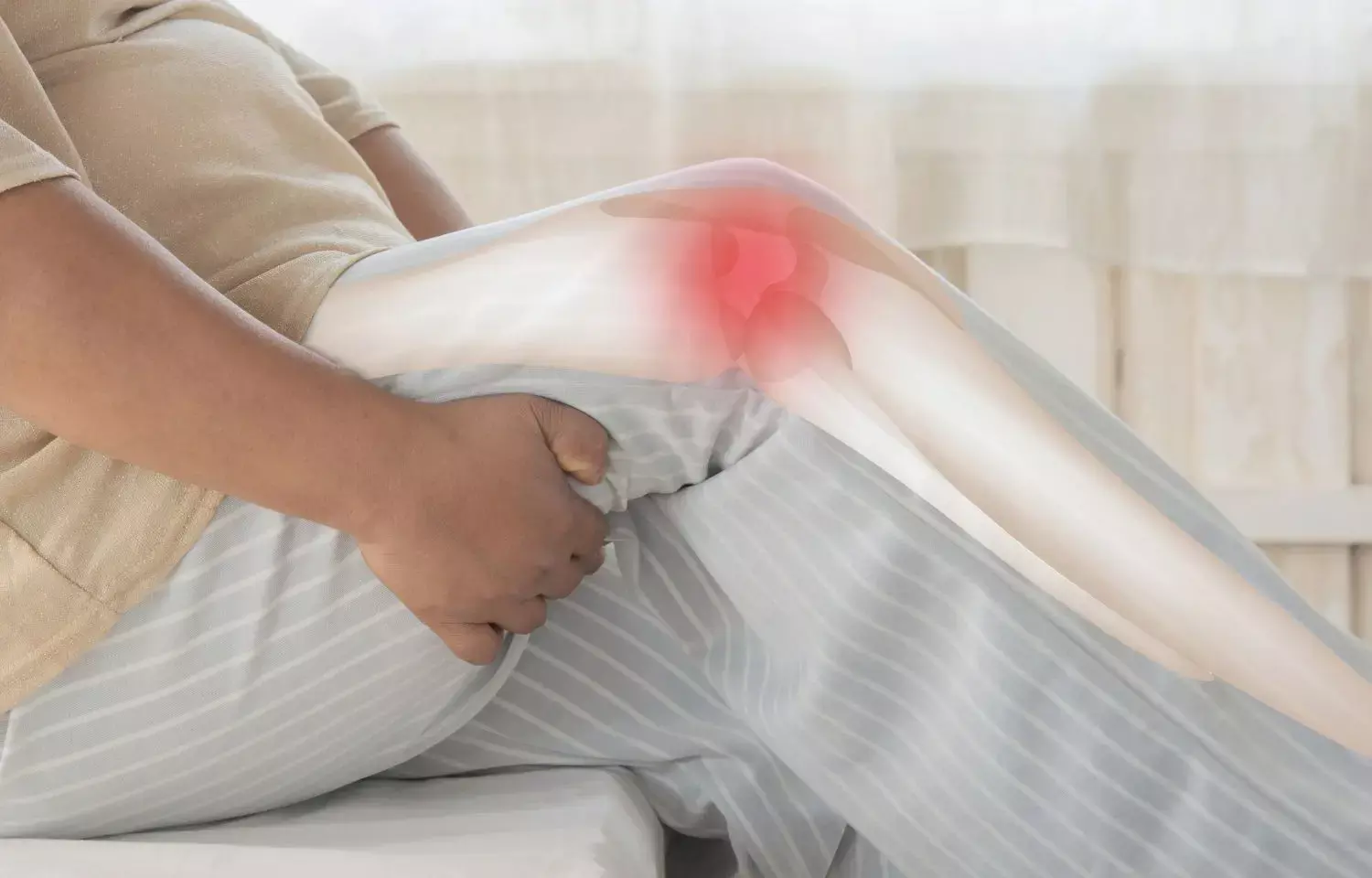- Home
- Medical news & Guidelines
- Anesthesiology
- Cardiology and CTVS
- Critical Care
- Dentistry
- Dermatology
- Diabetes and Endocrinology
- ENT
- Gastroenterology
- Medicine
- Nephrology
- Neurology
- Obstretics-Gynaecology
- Oncology
- Ophthalmology
- Orthopaedics
- Pediatrics-Neonatology
- Psychiatry
- Pulmonology
- Radiology
- Surgery
- Urology
- Laboratory Medicine
- Diet
- Nursing
- Paramedical
- Physiotherapy
- Health news
- Fact Check
- Bone Health Fact Check
- Brain Health Fact Check
- Cancer Related Fact Check
- Child Care Fact Check
- Dental and oral health fact check
- Diabetes and metabolic health fact check
- Diet and Nutrition Fact Check
- Eye and ENT Care Fact Check
- Fitness fact check
- Gut health fact check
- Heart health fact check
- Kidney health fact check
- Medical education fact check
- Men's health fact check
- Respiratory fact check
- Skin and hair care fact check
- Vaccine and Immunization fact check
- Women's health fact check
- AYUSH
- State News
- Andaman and Nicobar Islands
- Andhra Pradesh
- Arunachal Pradesh
- Assam
- Bihar
- Chandigarh
- Chattisgarh
- Dadra and Nagar Haveli
- Daman and Diu
- Delhi
- Goa
- Gujarat
- Haryana
- Himachal Pradesh
- Jammu & Kashmir
- Jharkhand
- Karnataka
- Kerala
- Ladakh
- Lakshadweep
- Madhya Pradesh
- Maharashtra
- Manipur
- Meghalaya
- Mizoram
- Nagaland
- Odisha
- Puducherry
- Punjab
- Rajasthan
- Sikkim
- Tamil Nadu
- Telangana
- Tripura
- Uttar Pradesh
- Uttrakhand
- West Bengal
- Medical Education
- Industry
Vaccinations in patients with rheumatic and musculoskeletal diseases: ACR guidelines

The American College of Rheumatology (ACR) released a summary of its new treatment guideline for Vaccinations in Patients with Rheumatic and Musculoskeletal Diseases (RMDs).
The effectiveness and safety of vaccines may differ in rheumatology patients as compared to the general population. The guideline summary provides recommendations on topics such as broadened indications for some vaccines in patients on immunosuppressants, medication management at the time of vaccination, and safe approaches to the use of live attenuated vaccines in patients on immunosuppressive medications.
"Patients worry about the safety of vaccines and the potential for inducing a disease flare. Providers are concerned whether rheumatic diseases and the medications used to treat them could blunt the effectiveness of vaccines," said Anne R. Bass, MD, Professor of Clinical Medicine, Hospital for Special Surgery and Weill Cornell Medicine in New York.
"They also want to know whether certain vaccines should be given to protect rheumatology patients who are outside the age range for which they are typically recommended. This guideline was designed to address these issues."
A few highlights of the new guideline include:
- Pneumococcal vaccination should be administered to all RMD patients taking immunosuppressive medications.
- Seasonal influenza vaccination should be administered to RMD patients even if their disease is active, they are taking high- dose glucocorticoids, and/or they are on rituximab.
- Methotrexate should be held for two weeks after influenza vaccination if disease activity allows.
- In RMD patients on rituximab, vaccines other than influenza should be administered at least 6 months after the last rituximab dose.
One recommendation that differs from current standards is to administer the rotavirus vaccine in the first 6 months of life to infants who have been exposed to tumor necrosis factor (TNF) inhibitors in utero. Rotavirus is a contagious virus that is most common in infants and young children. Currently, pediatricians postpone vaccination in these TNF-inhibitor exposed children until they are a year old.
The guideline also recommends a shorter interval between the last dose of a biologic disease modifying anti-rheumatic drug (DMARD) and administration of a live attenuated (a weakened form of the germ that causes the disease) vaccine.
"This new guideline recognizes that some patients, particularly very young children with autoinflammatory conditions, simply cannot stay off their medications for very long without having a severe flare of their disease. However, those patients still need to get vaccinated," said Dr. Bass.
The guideline recommends giving the adjuvanted influenza vaccination to patients under 65.
"This might come as a surprise to some providers since it hasn't been directly tested in that age group, but there are no safety signals in the older population," said Dr. Bass. "There might be concerns about lack of insurance coverage for vaccines recommended outside the typical age range, but the guideline itself will be a useful resource when discussing reimbursement with insurance companies."
Recommendations for COVID-19 vaccination in RMD patients was not included in the guideline. Readers can refer to the CDC for the most up-to-date recommendations for COVID-19 vaccination, including for patients on immunosuppressive medications.
Recommendations about holding immunosuppressive medications at the time of non-live attenuated virus vaccination in this guideline differ from those recommended around the time of COVID-19 vaccination in the ACR COVID-19 Vaccine Guidance.
"This is because prior to the introduction of COVID-19 vaccines in late 2020, there was little population-level immunity to the SARS-CoV-2 virus, and maximizing vaccine efficacy was a public health imperative," said Dr. Bass.
Reference:
Jeffrey R. Curtis, Sindhu R. Johnson, Donald D. Anthony, Reuben J. Arasaratnam, Lindsey R. Baden, Anne R. Bass, Cassandra Calabrese, Ellen M. Gravallese, Rafael Harpaz, Andrew Kroger, Rebecca E. Sadun, Amy S. Turner, Eleanor Anderson Williams, Ted R. Mikuls, First published: 26 April 2022https://doi.org/10.1002/art.4210
Dr Kamal Kant Kohli-MBBS, DTCD- a chest specialist with more than 30 years of practice and a flair for writing clinical articles, Dr Kamal Kant Kohli joined Medical Dialogues as a Chief Editor of Medical News. Besides writing articles, as an editor, he proofreads and verifies all the medical content published on Medical Dialogues including those coming from journals, studies,medical conferences,guidelines etc. Email: drkohli@medicaldialogues.in. Contact no. 011-43720751


